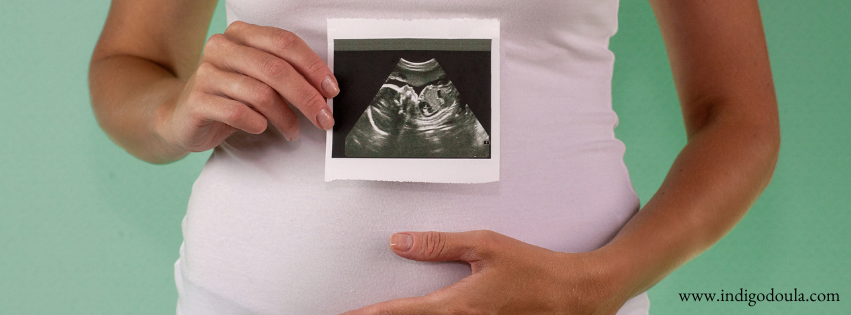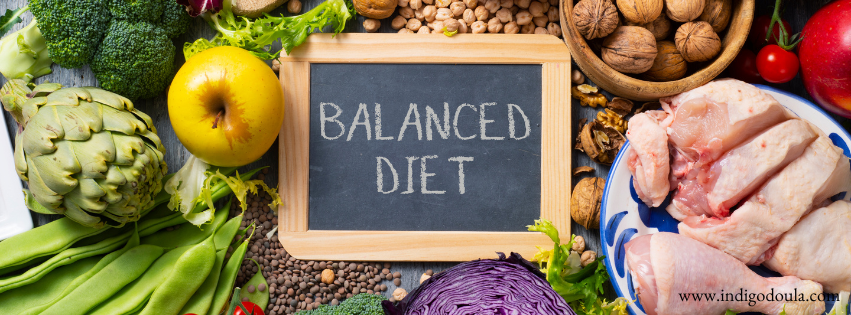Pregnancy is a remarkable journey that brings not only physical changes but a growing awareness of how essential nutrition is for both you and your baby. The food you eat during pregnancy is more than just sustenance; it’s the fuel that powers your baby’s growth and your own well-being. But did you know that your nutrient needs shift as you progress through each trimester? Let’s explore the key nutrients your body needs for a healthy pregnancy and how they support the growth and development of your little one.

First Trimester: Laying the Foundation
In the first trimester, your baby is rapidly developing from a tiny bundle of cells into a fully-formed fetus. This period is critical for the formation of major organs and structures, which means your body needs certain nutrients to ensure proper development.
Folate (Folic Acid)
Folate is one of the most crucial nutrients during early pregnancy, playing a vital role in neural tube development, which forms the brain and spinal cord. Research shows that adequate folate intake in early pregnancy reduces the risk of neural tube defects, such as spina bifida . Experts recommend taking 400-600 micrograms (mcg) of folic acid daily before and during the first trimester.
Sources: leafy greens, fortified cereals, legumes, and citrus fruits.
Vitamin B6
Known for its role in brain development and neurotransmitter function, Vitamin B6 can also help alleviate morning sickness, a common symptom in early pregnancy. Studies have found that supplementation with Vitamin B6 can significantly reduce nausea and vomiting during the first trimester .
Sources: bananas, potatoes, chickpeas, and poultry.

Second Trimester: Growing Strong
By the second trimester, your baby is growing rapidly and begins to develop key physical features. Your nutritional focus shifts toward supporting bone, muscle, and organ growth, as well as maintaining your own energy levels.
Calcium and Vitamin D
Calcium is essential for the development of strong bones and teeth for your baby, while Vitamin D helps your body absorb calcium efficiently. During the second trimester, your baby’s skeleton is forming, and if you don’t get enough calcium, your body will pull from your own bone reserves to supply your baby. Studies have highlighted that adequate Vitamin D during pregnancy reduces the risk of preeclampsia and supports fetal bone development .
Sources: dairy products, fortified plant milks, tofu, and sunlight (for Vitamin D synthesis).
Iron
Iron is a crucial nutrient throughout pregnancy, but especially in the second trimester as blood volume increases significantly. Iron helps produce hemoglobin, the protein in red blood cells that carries oxygen to both your tissues and your baby’s. Iron deficiency can lead to anemia, which is linked to premature birth and low birth weight .
Sources: lean meats, spinach, lentils, and iron-fortified cereals.

Third Trimester: Preparing for Birth
In the final stretch, your baby is preparing for life outside the womb, and your body is gearing up for labor and delivery. Nutrient needs in the third trimester focus on brain development, lung maturation, and energy storage.
Omega-3 Fatty Acids (DHA)
Omega-3 fatty acids, particularly DHA (docosahexaenoic acid), are critical for brain and eye development in the third trimester. Research has shown that adequate DHA intake during pregnancy can improve cognitive outcomes for babies and may reduce the risk of preterm labor .
Sources: fatty fish like salmon, flaxseeds, walnuts, and algae-based supplements.
Protein
As your baby continues to grow, protein becomes even more important for building tissues, organs, and muscle. Studies suggest that higher protein intake in the third trimester supports optimal birth weight and overall fetal health . Aim for about 75-100 grams of protein per day as you near the end of pregnancy.
Sources: eggs, poultry, beans, tofu, and quinoa.
Hydration and Fiber: Supporting Digestion and Circulation
While nutrients are key, don’t forget the importance of staying hydrated and ensuring good digestion. Pregnant women are more prone to constipation due to hormonal changes and the pressure of the growing uterus on the intestines.
Water
Adequate hydration supports amniotic fluid levels, blood volume expansion, and helps prevent dehydration-induced complications like premature labor. Aim for at least 8-10 cups of water a day, adjusting based on your activity level.
Fiber
Fiber helps keep your digestive system running smoothly, which is especially helpful in preventing constipation. It also stabilizes blood sugar levels, which can help reduce the risk of gestational diabetes .
Sources: whole grains, fruits, vegetables, and legumes.

Nutrients and Labor: Preparing Your Body for Birth
As labor approaches, there are certain nutrients that can help prepare your body for the physical demands of childbirth.
Magnesium
Magnesium plays a key role in muscle relaxation and can help prevent uterine cramps or “Braxton Hicks” contractions during late pregnancy. Magnesium-rich foods have also been linked to a reduced risk of preterm labor and a smoother labor process .
Sources: spinach, almonds, pumpkin seeds, and dark chocolate.
Dates
A fascinating study found that consuming dates in the final weeks of pregnancy may help shorten labor duration and reduce the need for induction . Researchers believe this is due to the fruit’s ability to promote cervical dilation and strengthen uterine contractions.
Takeaway: Tailor Your Diet to Each Trimester
Every stage of pregnancy brings unique challenges and nutritional needs. By tailoring your diet to include the essential nutrients for each trimester, you’re supporting your baby’s growth and setting the stage for a healthy, empowered birth experience. Always consult with your healthcare provider or a registered dietitian to ensure you’re meeting your specific nutritional needs.
Remember, pregnancy is a time to nourish both your body and your baby, so eat mindfully, stay active, and enjoy the beautiful changes along the way.
Sources:
- CDC. “Folic Acid and Pregnancy.”
- Matthews, A., et al. “Vitamin B6 in the Treatment of Nausea and Vomiting of Pregnancy.” American Journal of Obstetrics and Gynecology.
- The American Journal of Clinical Nutrition. “Vitamin D and Pregnancy: Current Knowledge and Guidelines.”
- Scholl, T.O., et al. “Iron Deficiency Anemia and Pregnancy.” The Journal of Nutrition.
- Dunstan, J.A., et al. “Omega-3 Fatty Acid Supplementation during Pregnancy.” The Journal of Nutrition.
- Blumfield, M.L., et al. “Protein Intake in Pregnancy.” American Journal of Clinical Nutrition.
- Tobias, D.K., et al. “Dietary Fiber and the Risk of Gestational Diabetes.” Diabetes Care.
- Ryan, M.P., et al. “The Role of Magnesium in Pregnancy and Labor.” European Journal of Clinical Nutrition.
- Al-Kuran, O., et al. “The Effect of Late Pregnancy Consumption of Date Fruit.”

0 Comments